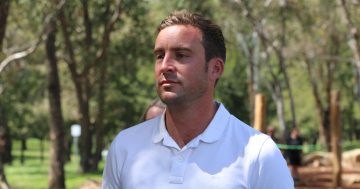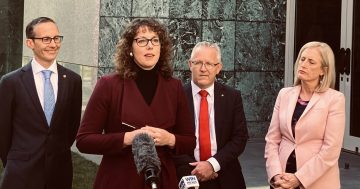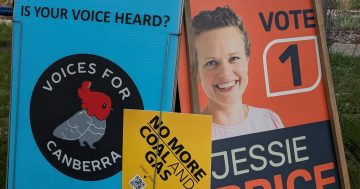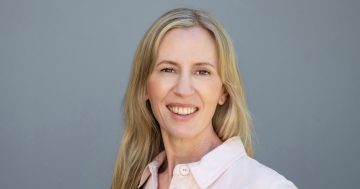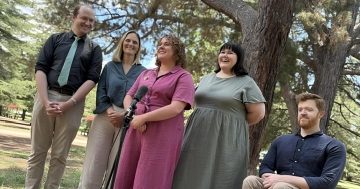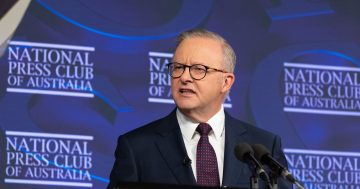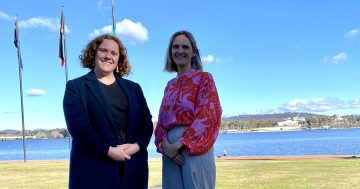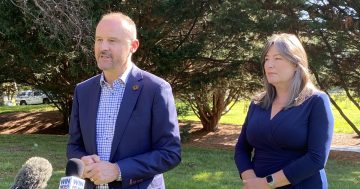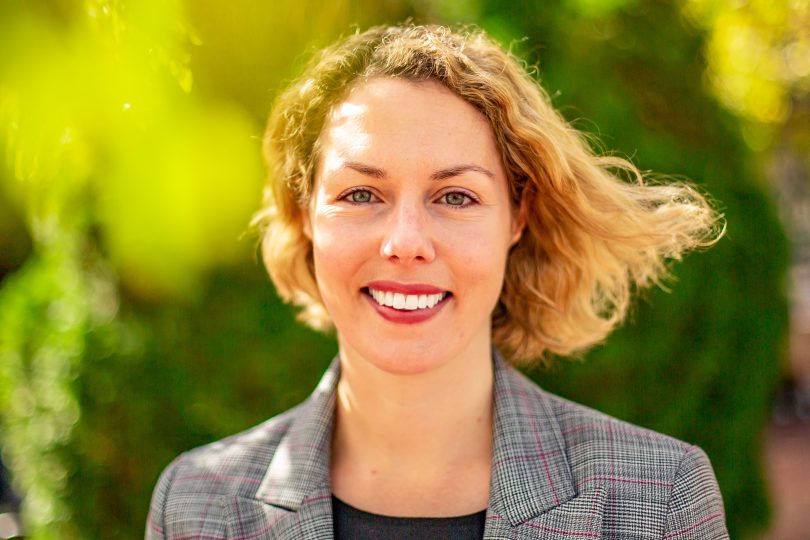
Alicia Payne is a first-time candidate for Canberra. Photos: George Tsotsos.
Days away from the election, Canberra’s Labor candidates may be anticipating a safe road to the big house given ACT electoral history, but you won’t get any concessions from them about winning.
In my second series of candidate interviews, I asked what motivates them; what the major issues for Canberra voters are; whether local and federal issues are confused; does Canberra suffer from having safe seats and where they sit politically inside their party?
I spoke to Andrew Leigh at Trev’s in Dickson, Alicia Payne at Tilleys and David Smith at Fox and Crew in Farrer (he highly recommends the calamari sandwiches).
Member for Fenner Andrew Leigh says incumbency gives him “a deeper understanding about making a difference”, explaining how his early commitment to public service jobs has morphed into specific plans to rebuild the Tax Office.
“We need to do more on multinational tax avoidance – it’s a race with accounting firms coming up with tricky lurks for the top end of town, so we’re ensuring the ATO has the expertise but also building Canberra jobs.”
Specific local plans include $200m funding for light rail stage two, upgrading the Holt playing fields and resourcing UC’s indigenous entrepreneurship program.
Leigh also flags funding for Ginninderra Creek restoration, saying his engagement comes from running regular wetlands clean-ups. It’s grassroots needs that meet Labor’s environmental policy through activism, so “Canberra gets our fair share of resources”.
“Canberra interests will be far better looked after under Labor. I have a stronger idea as part of Labor’s economic team about what needs to be done, and we’ll look back at the end of the first term and say we’ve finally been treated the way we deserve.”
He doesn’t take his election for granted, engaging via mobile offices, town-hall meetings, social media, podcasts and Gungahlin park runs. “That’s what a community should expect of their MP. You should love your community and work for it. It’s a privilege, not a right.”
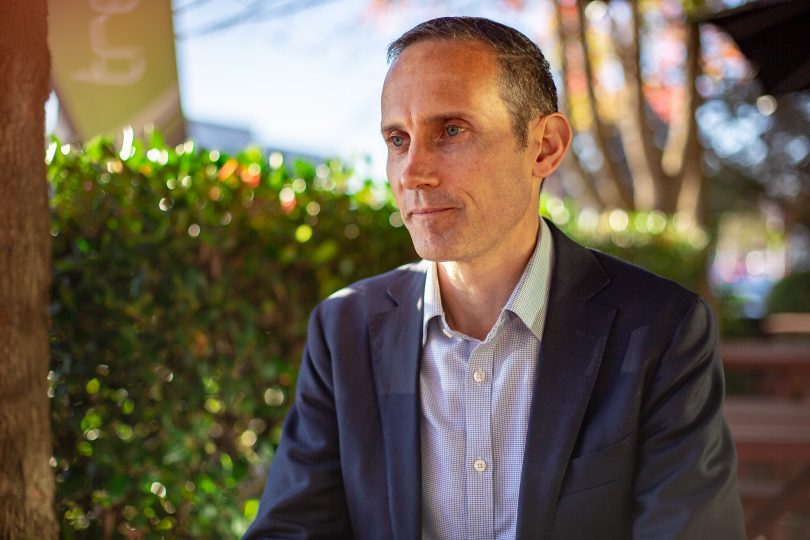
Andrew Leigh – The Fenner MP is the only sitting Canberra representative in the lower house.
David Smith is tilting at the new seat of Bean. Despite his brief Senate stint, he’s driven by his work with Professionals Australia, representing scientists and engineers.
“The issues were broken workplace relations: I saw interminable bargaining periods, sluggish wage growth, outsourcing, decentralisation. Those issues don’t just impact Canberra jobs but also good government.
“We are commercialising policy advice and destroying expertise, which gets in the way of resolving challenges we face with climate change, the jobs of tomorrow, health and transport.”
A child of public servants, Smith characterises an estimated $39 billion* spent on contracted consultants in public sector management as “an extraordinary amount of money” that, he says, creates integrity issues.
“We want governments to work together to deliver better outcomes on problems like fixing the incredibly pathetic NBN in Tuggeranong. Despite returning a Liberal senator from there, Zed wasn’t prepared to stand up for equitable access to internet services.”
He resists suggestions Canberra misses out on three-yearly pork barreling, saying the ACT would be better with “programs that are not rolled out in response to the electoral cycle, or you end up with a distorted approach to policy delivery.”
Smith concedes that “notionally” he’s on the right, but also insists his union background means “I’m fairly well aligned with right and left members who have working families at heart. I’ll be a Labor representative for the ACT, that’s where my interests will lie.”
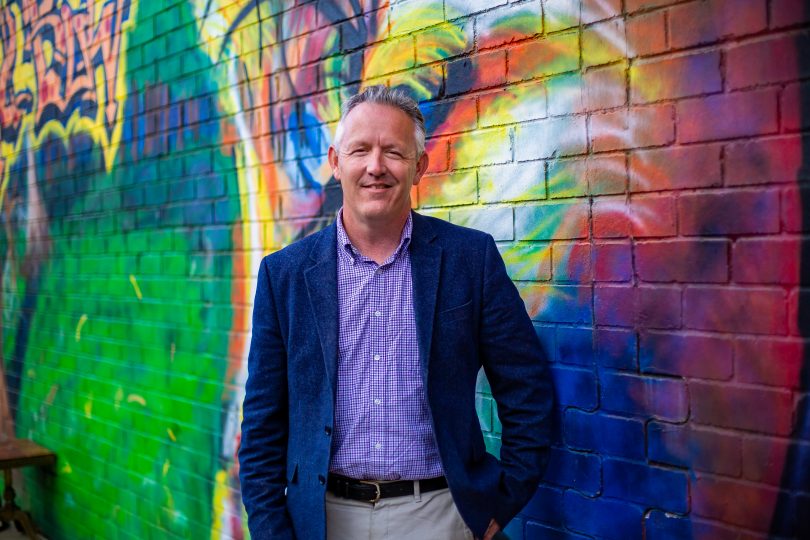
David Smith replaced Katy Gallagher in the Senate but is now standing for the new seat of Bean.
Kambah-born Alicia Payne is running for Canberra, saying her career as an economist “has been about finding policy answers to poverty and inequality. Politics is where those decisions are made and I want to be part of it.”
Payne worked for NATSEM, then ministers Tanner and Macklin after John Howards’ changes to sole parent payments prompted her to join Labor. When the pre-selection chance arose, she had a five-month-old baby.
That choice wasn’t easy, but “these are issues plenty of families are grappling with. If we don’t make it OK for women with young children to be in Parliament, it won’t be representative of the community.”
Payne says voters raise climate change, housing and costs of living with her. “Canberra is a relatively well-off community so it can be a particularly difficult place to be poor. Social justice is as important here if not more than elsewhere.”
“Labor’s promising investment into schools, hospitals, light rail stage two, and funding for bike paths around the city. We’re committed to lifting the ASL cap, removing additional efficiency dividends and more jobs for DHS. The public service was my dad’s career, I was a public servant too, and I’m happy to stand up for that.”
Payne is determinedly non-aligned, like Leigh. “In the ACT that matters to people. I signed a pledge when I joined to support Labor candidates and policies. It’s not about being anti-faction but listening to all the arguments.”
The conclusion? In line with national campaign strategy, Labor candidates had more to say on policy. All three are closer to the union/professional politician nexus than opponents, but still saw themselves as strongly local representatives and believers in the Canberra community.
*This article was edited to correct the original figure of $39 million.












